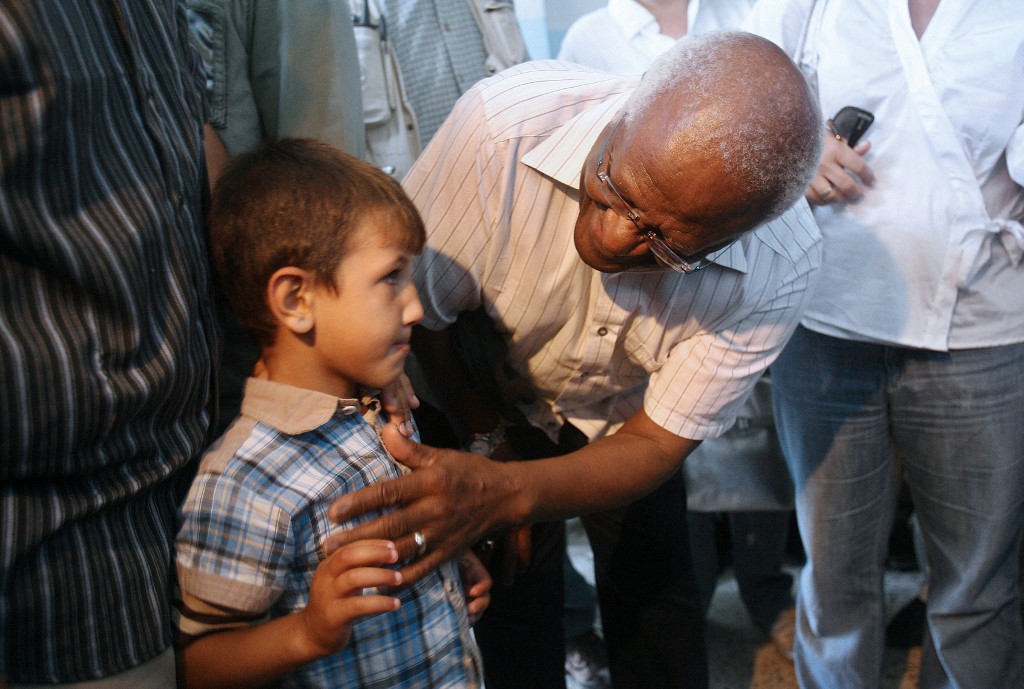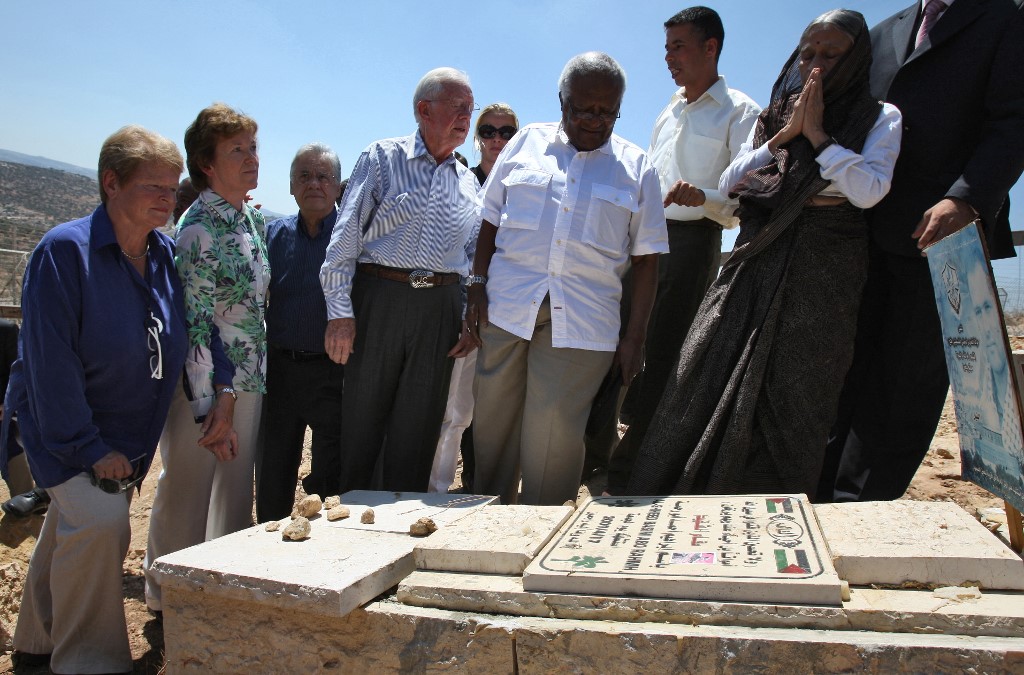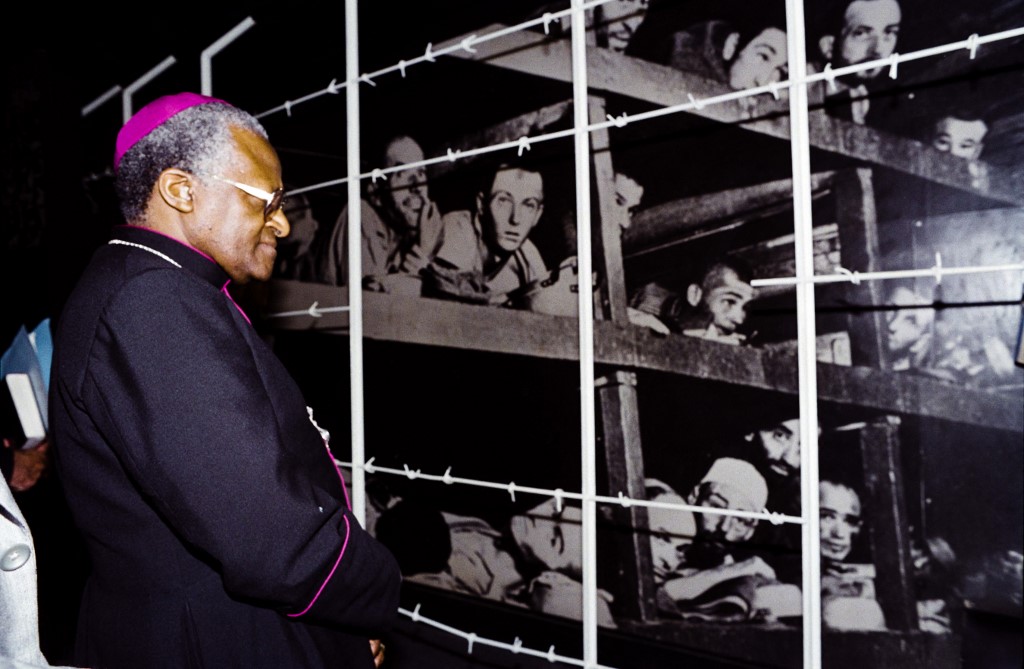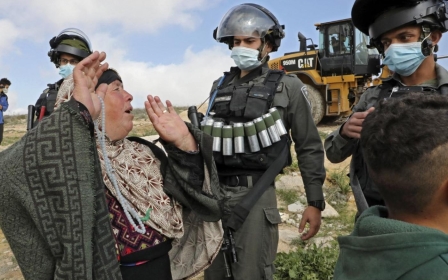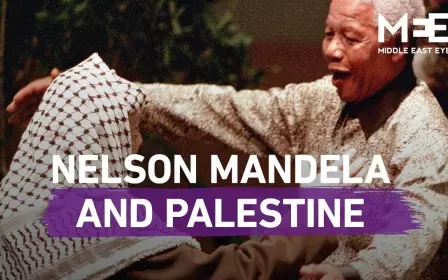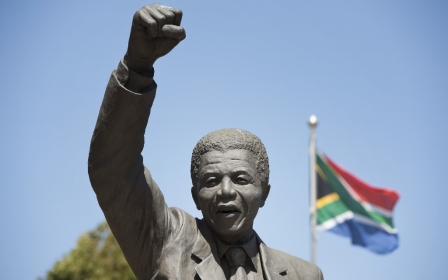Anti-apartheid icon Archbishop Tutu dies. Here is what he said about Israel-Palestine
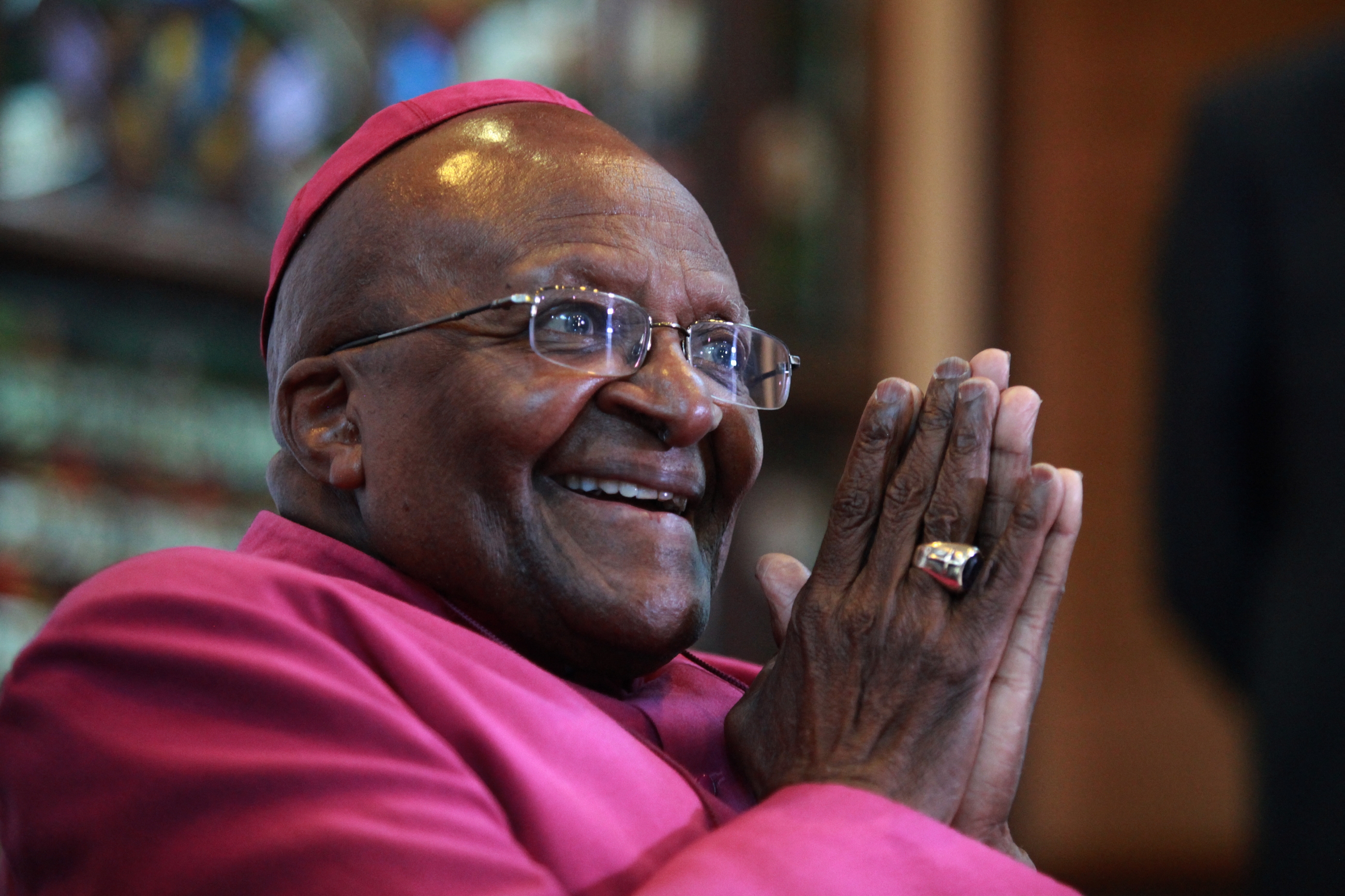
South Africa’s anti-apartheid icon Archbishop Desmond Tutu, Nobel Peace prize laureate, died on Sunday aged 90.
A contemporary of Nelson Mandela, Tutu was known not just for his role in ending a dark chapter of racial discrimination in his country but also for speaking out against injustices around the world, including in the Middle East.
'I wish I could keep quiet about the plight of the Palestinians. I can't!'
- Archbishop Desmond Tutu
South Africa's President Cyril Ramaphosa honoured this fight in a tribute to Tutu announcing the archbishop's death.
"The passing of Archbishop Emeritus Desmond Tutu is another chapter of bereavement in our nation's farewell to a generation of outstanding South Africans who have bequeathed us a liberated South Africa," he said in a statement.
"A man of extraordinary intellect, integrity and invincibility against the forces of apartheid, he was also tender and vulnerable in his compassion for those who had suffered oppression, injustice and violence under apartheid, and oppressed and downtrodden people around the world."
New MEE newsletter: Jerusalem Dispatch
Sign up to get the latest insights and analysis on Israel-Palestine, alongside Turkey Unpacked and other MEE newsletters
Israeli-Palestinian conflict
Archbishop Tutu was an outspoken critic of Israeli occupation in Palestine and the siege on Gaza.
"I wish I could keep quiet about the plight of the Palestinians. I can't! The God who was there and showed that we should become free is the God described in the Scriptures as the same yesterday, today and forever," he told the Washington Post in 2013.
He drew parallels between Israeli occupation and apartheid in South Africa.
"What's being done to the Palestinians at checkpoints, for us, it's the kind of thing we experienced in South Africa."
Tutu was to lead a UN fact-finding mission with Professor Christine Chinkin to investigate a November 2006 Israeli attack on Gaza's Beit Hanoun district that led to the deaths of 19 Palestinians, including seven children.
Israel refused to grant Archbishop Tutu and Professor Chinkin authorisation to enter Gaza, but they were eventually able to travel to the besieged territory via Egypt. They met with survivors and eye-witnesses and produced a report to the Human Rights Council.
In a May 2008 statement about his mission, the archbishop decried the Israeli siege on Gaza, in place since 2007, as "a gross violation of human rights". He also said the Israeli siege contradicted the Jewish and Christian scriptures.
"Those scriptures speak about a God: a God of the Exodus, a God notoriously biased in favour of the weak, of the oppressed, of the suffering, of the orphan, of the widow, of the alien," he said.
"We are in a state of shock, exacerbated by what we subsequently heard from the victims and survivors of the Beit Hanoun massacre. For us, the entire situation is abominable," the joint statement by Desmond Tutu and Professor Chinkin said.
"We believe that ordinary Israeli citizens would not support this blockade, this siege if they knew what it meant for ordinary people like themselves. No, they would not support a policy which limits fuel supplies or automatically cuts off the electricity supply.
"They would not support a policy which jeopardizes the lives of ordinary men and women in hospital, that cuts off water and food from hospitals jeopardizing the lives of babies."
In August 2009, Desmond Tutu joined a delegation of the international NGO "The Elders" in a visit to Israel and occupied Palestinian territories to advocate for peace.
Most recently, in an article published in the Israeli newspaper Haaretz in 2014, Desmond Tutu declared his support for the international movement of boycott, sanctions and divestment (BDS) as a peaceful means of opposing Israeli occupation.
"Those who continue to do business with Israel, who contribute to a sense of 'normalcy' in Israeli society, are doing the people of Israel and Palestine a disservice. They are contributing to the perpetuation of a profoundly unjust status quo," he wrote.
The archbishop voiced his opposition to acts of violence by both sides of the conflict, although he described Israel's response to Palestinian missiles as "disproportionately brutal".
"I have condemned those in Palestine responsible for firing missiles and rockets at Israel. They are fanning the flames of hatred. I am opposed to all manifestations of violence.
"Missiles, bombs and crude invective are not part of the solution. There is no military solution.
"The solution is more likely to come from that nonviolent toolbox we developed in South Africa in the 1980s, to persuade the government of the necessity of altering its policies."
This article is available in French on Middle East Eye French edition.
Middle East Eye delivers independent and unrivalled coverage and analysis of the Middle East, North Africa and beyond. To learn more about republishing this content and the associated fees, please fill out this form. More about MEE can be found here.


